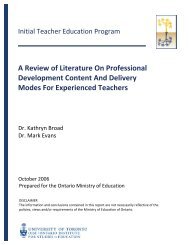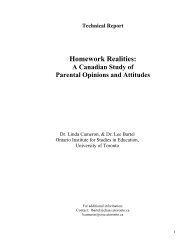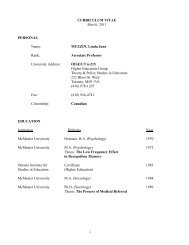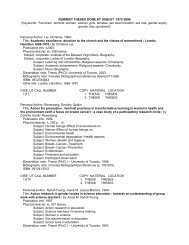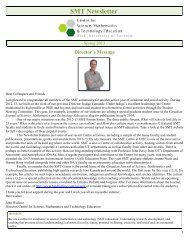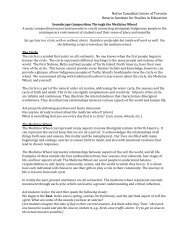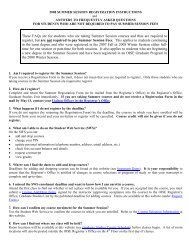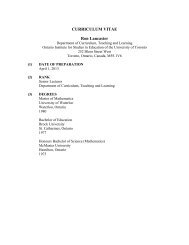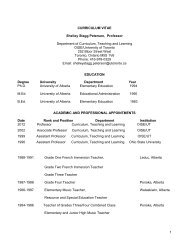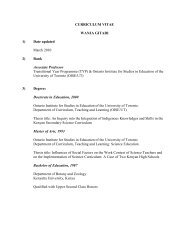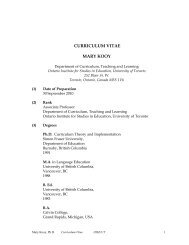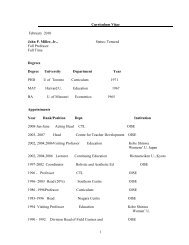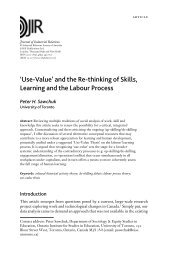The Ontario Curriculum, Grades 9-12 - Ministère de l'éducation ...
The Ontario Curriculum, Grades 9-12 - Ministère de l'éducation ...
The Ontario Curriculum, Grades 9-12 - Ministère de l'éducation ...
You also want an ePaper? Increase the reach of your titles
YUMPU automatically turns print PDFs into web optimized ePapers that Google loves.
Canadian and World Politics, Gra<strong>de</strong> <strong>12</strong>, University/College<br />
Preparation (CPW4U)<br />
Participation in the International Community<br />
• explain the rights and responsibilities of individual citizens, groups, and states in the<br />
international community<br />
– <strong>de</strong>scribe the rights and obligations of selected international groups (e.g., UNESCO,<br />
International Monetary Fund [IMF], environmental lobby groups)<br />
– <strong>de</strong>scribe the actions of individuals, including Canadians, who have influenced global<br />
affairs (e.g., Nelson Man<strong>de</strong>la, Jimmy Carter, Kim Dae-jung, Aung San Suu Kyi, Pope<br />
John Paul II, Lester B. Pearson, David Suzuki, Stephen Lewis, Craig Kielburger)<br />
• evaluate the role of Canada and Canadians in the international community<br />
– evaluate the role of pressure groups in formulating and implementing Canada’s foreign<br />
policy (e.g., anti-landmine activists, the environmentalist lobby, the media, the Alliance<br />
of Manufacturers and Exporters Canada)<br />
• <strong>de</strong>scribe the structure and function of international intergovernmental and nongovernmental<br />
organizations<br />
– explain the origins, functions, and objectives of selected international non-governmental<br />
organizations (NGOs) (e.g., International Committee of the Red Cross/Red Crescent,<br />
Amnesty International, Greenpeace)<br />
Power, Influence, and the Resolution of Differences<br />
– analyse how natural resources and human resources help to <strong>de</strong>termine the power and<br />
influence of a country (e.g., geography, <strong>de</strong>mography, economic resources and markets,<br />
military strength and diplomatic traditions)<br />
• evaluate Canada’s role and influence in international relations<br />
– <strong>de</strong>scribe some important factors shaping Canadian foreign policy (e.g., commitments un<strong>de</strong>r<br />
the 1997 Mine Ban Treaty, Kyoto Protocol, North American Free Tra<strong>de</strong> Agreement)<br />
Values, Beliefs, and I<strong>de</strong>ologies<br />
• compare the aspirations, expectations, and life conditions of people in <strong>de</strong>veloped and<br />
<strong>de</strong>veloping nations<br />
– compare key elements of selected theories concerning the nature of effective<br />
<strong>de</strong>velopment (e.g., in relation to human <strong>de</strong>velopment, global industrialization, sustainable<br />
national <strong>de</strong>velopment, ecological preservation)<br />
Canadian and World Studies 63



